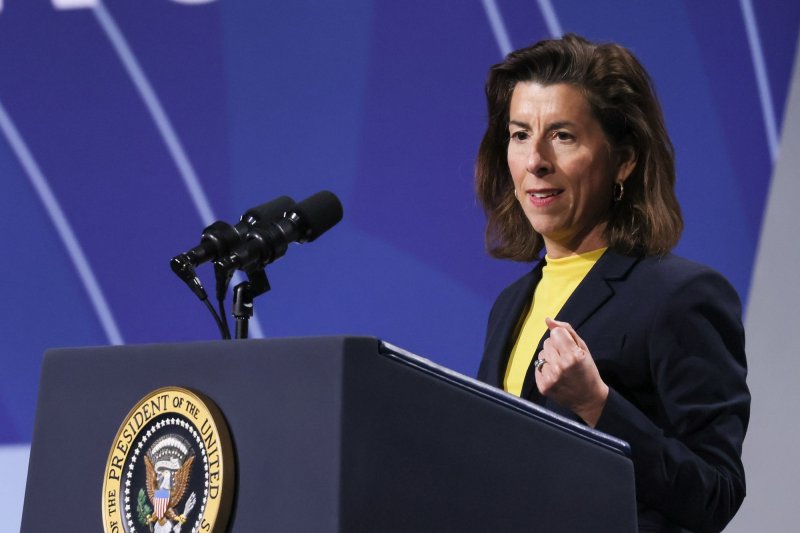
1 of 2 | U.S. Secretary of Commerce Gina Raimondo is visiting China and is set to arrive in Beijing Sunday just as a long-standing bilateral technology between the two countries is set to expire. File Photo by Jemal Countess/UPI | License Photo
Aug. 26 (UPI) — U.S. Secretary of Commerce Gina Raimondo is visiting China this weekend with technology expected to be the prime topic as a long-standing tech agreement between the two countries is set to expire.
Raimondo is set arrive in China on Sunday and is expected to face pressure from Beijing to renew the China-U.S. Science and Technology Agreement during her four-day visit, where she will meet with senior Chinese government officials.
The China-U.S. deal was first signed in 1979 under then-president Jimmy Carter and has historically been renewed every five years. It serves as the umbrella agreement for the scientific relationship between the U.S. and Chinese governments, but is now opposed by Republican members of Congress, some of whom contend China uses it for military and defense purposes.
American officials have said nothing is imminent when it comes to renewing the technology agreement, which was signed by Carter and former Chinese leader Deng Xiaoping.
Raimondo, the 52-year-old former governor of Rhode Island, will become the third member of President Joe Biden‘s cabinet to visit China since June. Treasury Secretary Janet Yellen traveled to Beijing in July. Secretary of State Antony Blinken made a two-day trip to China in June.
While her official mandate is to boost trade between the two countries, Raimondo is expected discuss a wide range of pressing issues with Chinese officials including Commerce Minister Wang Wenta, sources told the South China Morning Post.
Data security, China’s anti-espionage laws and the country’s ban covering the import of microchips produced by Idaho-based Micron Technology are expected to be among the most pressing topics.
The Chinese government in July said it would start limiting exports of two rare raw metals used in microchip production.
At the time, the move was widely seen as retaliation for earlier U.S. semiconductor export restrictions against Beijing, which have been a major focus under Biden’s presidency.
The bans on gallium and germanium went into effect at the start of August.
“I look forward to constructive discussions on our commercial relationship, challenges faced by US businesses, and areas for potential cooperation,” Raimondo told reporters Tuesday.


